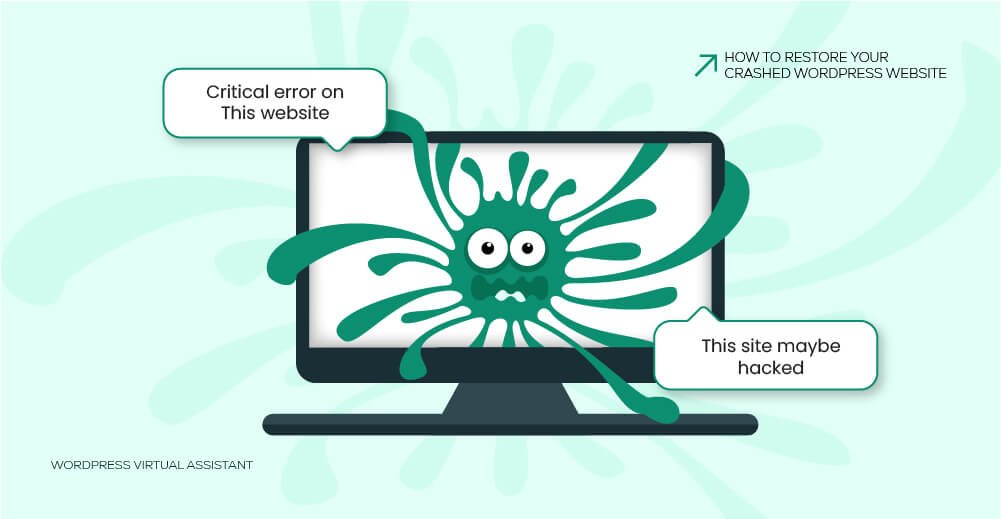Website speed is no longer optional—it’s a key driver of conversions, good user experience, and higher SEO rankings. According to Google research, if a page takes more than 3 seconds to load, over 53% of mobile users will abandon it. A 1-second difference in load time can result in a 90% increase in bounce rate.
If you’re using WordPress for your website, there are a few key elements that fix a slow WordPress website—picking a good hosting provider, the right theme, a skilled developer, and the right performance plugins.
But, choosing the right speed optimization plugin is probably the most critical part. Even if your site isn’t perfectly built or hosted, a solid plugin can still make a big difference.
This guide is about the best WordPress speed optimization plugins. It’s based on our hands-on experience, and we’ve been using these plugins to optimize our clients’ websites for significant results. There is no fluff, no bloated lists.
Best Plugins to Speed Up WordPress – A Quick Snapshot
| Plugin | Ideal For | Pricing | |
|---|---|---|---|
| WP Rocket | All-in-one performance optimization | From $59/year | Read More |
| NitroPack | One-click, fully automated optimization | Free/Paid | Read More |
| Swift Performance AI | AI optimization is perfect for WooCommerce stores | Free/Paid | Read More |
| LiteSpeed Cache | Effectively manages cache | Free | Read More |
| Asset CleanUp | Script management to reduce bloat | Free/Paid | Read More |
| EWWW Image Optimizer | Images optimization | Free/Paid | Read More |
| OMGF | Optimizes Google Fonts delivery | Free/Paid | Read More |
| WP-DBManager | Database optimization, repair, backup, and restore | Free | Read More |
| Media Cleaner | Remove unused media | Free | Read More |
Why Trust WP Virtual?
With so many WordPress speed plugins available, choosing the ones your website truly needs can be challenging. We tested nearly 21 plugins and shortlisted some of the best in the business. You can trust this list of performance plugins for the following reasons:
- We’re a team of WordPress experts: This guide isn’t written by a random content writer. The selection of plugins is curated by our WordPress performance engineers at WP Virtual.
- We use these plugins on our projects: This plugin list is not gathered from internet research; in fact, we are regular users of these plugins, which have been used to optimize our customers’ sites for years.
We’re a team of WordPress experts with 10+ years of experience in WordPress development, performance, and organic growth. Meet our team!
1. WP Rocket

Price: Starting from $59/year for one site.
WP Rocket is a premium all-in-one performance plugin that makes your WordPress site faster without the hassle of using multiple tools. It takes care of caching, file minification, lazy loading, database cleanup, and even CDN integration — all through a clean, beginner-friendly dashboard.
Whether you’re a beginner or a pro, WP Rocket makes speed optimization simple and effective.
While many performance plugins overwhelm you with technical jargon and complicated setups, WP Rocket feels refreshingly simple. The interface is clean, intuitive, and beginner-friendly. You activate it, and most speed best practices are already running in the background.

WP Rocket includes automatic caching for logged-in users—a feature many free plugins skip. This is especially useful for running membership sites, LMS platforms, or WooCommerce stores that need speed and compatibility simultaneously.
What we Like:
- Beginner-friendly UI with powerful default settings
- 80% of web performance best practices are auto-applied
- Automatically generates static HTML pages for faster load times
- Reduces and combines CSS, JS, and HTML files to shrink load time
- Defers loading of images, iframes, and videos until visible
- Cleans post revisions, drafts, spam, and transients
- Considerably boosts core web vitals
- Preloads pages and prefetches DNS to speed up perceived performance
- Works smoothly with CDN services like Cloudflare and StackPath
- Delays or defers non-critical JS for faster page rendering
- Automatically excludes cart and checkout pages from caching
- Compatible with almost every major host, theme, and plugin
- Heartbeat API control to reduce admin AJAX load
We’ve been using WP Rocket for years on our projects. We love this plugin because it’s dependable for removing many other child performance plugins. Unfortunately, there is no FREE version, but the price offers excellent value for money and is affordable for most site owners.
Lastly, the support team is knowledgeable, and you can find many resources on the Internet to learn more about its functionalities and troubleshooting, which makes it the best WordPress speed optimization plugin on our list.
2. NitroPack

Price: Free or from $17.50/mo per site.
NitroPack is an excellent choice for non-technical users who want a “set it and forget it” solution for speed optimization and core web vitals.
This one-click performance plugin supercharges your site in minutes without requiring you to adjust settings such as caching, minification, asset management, or image optimization. Through its cloud cache technology, all the assets (images, database, etc.) are automatically pushed to the global CDN.
NitroPack also includes a default image CDN, which was found missing in WP Rocket.

NitroPack is quickly gaining global trust for its robust, hands-off optimization. It’s especially popular with dynamic websites that have many pages, as it takes the hassle out of managing performance.
What we Like:
- Fully automated optimization
- Built-in CDN
- Automated image, scripts, assets, and file optimization
- Built-in performance monitoring (LCP, CLS, TTFB)
- One-click integration with WordPress & WooCommerce
- Works on shared & low-resource hosting
- Best for non-technical users who are new to the topic
In some cases, we’ve found it to be a little aggressive, which affected page structure and tracking scripts. Therefore, it’s recommended that you test it on the free plan first.
NitroPack is an excellent deal for sites looking for automation and don’t mind paying a monthly fee. However, we think WP Rocket is a better option if you still prefer more flexibility.
3. Swift Performance AI

Price: Starts from $49/year for one site.
Swift Performance is another cost-effective and fully automated WordPress speed optimization plugin that uses AI. It configures optimal settings for your website, eliminating the need for manual adjustments (although it does allow you to make manual tweaks).
It aims to improve Core Web Vitals and overall site performance with intelligent caching (page, AJAX request, and dynamic), CSS and JS optimization, and image handling.
Swift Performance AI stands out with its built-in image optimizer and lazy loading for media, reducing load times without relying on a CDN. It also boosts e-commerce performance by optimizing cart and checkout pages and supporting multi-currency caching.
What we Like:
- AI-powered optimization
- Advanced caching
- Minifies, combines, and generates critical CSS on the fly
- Compresses all images, including third-party and background, without a CDN
- Removes junk data to keep the site lean and fast
- Loads only the necessary fonts and icons for better rendering
- Enhances cart and checkout performance; supports multi-currency caching
- Disable plugins on specific pages to reduce overhead
Swift Performance AI is highly recommended for site owners looking for simplicity and control. It’s an economical solution for moderate to dynamic sites concerned about fast, efficient, and scalable WordPress performance.
4. LiteSpeed Cache

Price: Free on LiteSpeed servers; requires a QUIC.cloud plan for full features elsewhere.
LiteSpeed Cache (LSC) is hands-down one of the most powerful and underrated speed plugins available, and it’s completely free.
Unlike many other cache plugins that rely on PHP-based caching, LiteSpeed Cache taps directly into server-level caching, which makes it significantly faster and more efficient. It’s like having performance steroids built into your web server.
What sets LSC apart is its blend of raw power and deep customization. Whether you’re running a WooCommerce store, a content-heavy blog, or a membership platform, LiteSpeed Cache offers more granular controls than almost any other free plugin.
What we Like:
- Faster than typical PHP-based caching plugins (like WP Super Cache or W3 Total Cache)
- Reduces Time to First Byte (TTFB) and overall page load time
- Minifies, combines, and defers CSS/JS
- Includes inline CSS/JS optimization and critical CSS generation
- Automatically compresses images and serves WebP versions
- Compatible with most popular themes and plugins
- Includes security-focused features like login CAPTCHA and brute-force protection
- Automatically compresses images and serves WebP versions
- Caches product, category, and checkout pages
Even better? Many features you’d typically need to pay for—like image optimization, critical CSS, and lazy loading—are fully integrated and free in LSC.
LiteSpeed Cache is one of the most powerful and efficient performance plugins available. If you’re not on a LiteSpeed server, some features won’t work—but even then, it’s still a solid optimization tool.
5. Asset CleanUp

Price: Free
If your WordPress site loads dozens of CSS and JavaScript files that aren’t even needed on every page, Asset CleanUp is the cleanup crew your site didn’t know it needed. It doesn’t replace caching plugins but complements them by trimming the fat from your frontend.
Unlike general caching plugins, Asset CleanUp doesn’t focus on speeding up everything; it only loads what matters. It gives precise control over what scripts and styles load per page.
This selective unloading leads to a leaner frontend, fewer HTTP requests, and a significant improvement in Core Web Vitals.
- Disable unnecessary scripts/styles on specific pages (e.g., site-wide contact form scripts)
- Optimize individual posts, pages, or custom post types
- Cut HTTP requests and speed up loading
- View all CSS/JS per page to decide what to unload
- Reduces render-blocking resources, improving metrics like First Contentful Paint (FCP) and Largest Contentful Paint (LCP)
- Turn off plugin/theme assets not needed site-wide
We love Asset CleanUp’s ability to declutter your WordPress pages from unnecessary CSS and JavaScript.
👀 Recommended Strategy: For best results, pair it with a caching plugin like LiteSpeed Cache or WP Rocket for a complete performance stack.
We considered Perfmatters better for general speed tweaks, while Asset CleanUp offers more detailed asset control for advanced users. Asset CleanUp is free, but Perfmatters ($29.95/year) shines with its easy options to disable unused WordPress features.
6. EWWW Image Optimizer

Price: Free, Starting from $8/month
EWWW Image Optimizer is our favorite image optimization plugin in WordPress for many reasons. It offers different modes of image optimization, including Lossy, Lossless, and Glossy, which allows us to manage user experience and speed benchmarks simultaneously.
Unlike many competitors, EWWW does not impose monthly limits on image optimization in its free version. This makes it ideal for sites with large media libraries or frequent uploads. However, it has an image CDN as a premium add-on.
EWWW also supports WebP conversion and serves automatically to supported browsers. It eliminates the need for extra WebP plugins like WebP Converter For Media.
What we Like:
- Multiple conversion options
- Unlimited image optimization is ideal for sites with large media files
- Built-in image lazyloading
- Supports all image file types i.e., JPEG, PNG, GIF, WebP, and PDF files
- Compatible with most of the themes and plugins
- Allows hooks, filters, and API for developers who want to customize image optimization workflows
EWWW Image Optimizer is excellent for any business that wants flexibility, control, and room to grow. The free version works well for small websites, while the premium plans offer extra features and better performance for bigger sites.
❗Just a Thought: We also considered ShortPixel, but found EWWW Image Optimizer to be more effective in terms of features, performance, and price.
7. OMGF

Price: Free
If Google Fonts are slowing down your site or triggering PageSpeed warnings, OMGF (Optimize My Google Fonts) is your fix. It’s a lightweight, set-it-and-forget-it plugin that solves a particular problem: external font requests.
By default, most WordPress themes load Google Fonts directly from Google’s servers—adding extra DNS lookups, increasing render delays, and hurting your FCP and LCP metrics. OMGF changes all that by downloading the fonts to your server and serving them locally.
Once installed, it automatically detects the fonts, downloads them, and rewrites your theme’s CSS to point to the local versions.
What we Like:
- Speeds up your website by reducing external requests to Google Fonts servers
- Avoids loading fonts from Google’s servers, which can track visitors
- Automatic font detection
- Simple configuration with no coding needed
- Improves Core Web Vitals
OMGF focuses on optimizing fonts, so it won’t cause a big speed boost alone. It works silently in the background while improving your Core Web Vitals. Plus, if you’re already using performance tools like WP Rocket or Perfmatters, OMGF plays nicely alongside them—no conflicts.
8. WP-DBManager

Price: Free
Database optimization is a key factor in the WordPress speed optimization checklist, and there is no better option than WP-DBManager.
This plugin is a no-frills, reliable tool that handles all your core database tasks in one place. From optimizing and repairing tables to backing up and restoring your database, it ensures your site runs clean.
What we Like:
- Automatically backs up your database on a schedule you set
- Essential for disaster recovery in case your site crashes or gets hacked
- Removes overhead that can accumulate over time from post revisions, spam comments, and plugin data
- Allows you to repair corrupted tables in case something goes wrong
- Lets you restore your site using a previous backup directly from the WordPress dashboard
- Easily browse, empty, drop, and run maintenance on specific tables
WP-DBManager is an essential WordPress speed optimization plugin for managing database optimization from your WordPress dashboard. However, you may not require it if you’re already using all-around speed plugins like WP Rocket and others.
Important: It stores backups on your server, which isn’t ideal if your server goes down. Pair it with off-site storage (e.g., Google Drive or Dropbox via another plugin) for better safety.
9. Media Cleaner

Price: Free
While Media Cleaner is a direct speed optimization plugin, it can also do many good things for your WordPress website.
Many sites have unused media (images, videos, PDFs) that bloat the database and server. Media Cleaner scans your Media Library and database to find unused files, deleted attachments, and orphaned media.
“We recently encountered a WooCommerce store with 1000+ unused product images, which was unknowingly putting a load on the server and disk space. Cleaning up those media significantly improved dashboard usability and loading times, reducing WordPress installation’s overall size”.
What we Like:
- Items are moved to the trash (within the plugin) before permanent deletion
- Gives you a chance to review or test before deletion
The Media Cleaner plugin is excellent for site owners with large media libraries (ecommerce, blog, or photographers). We recommend taking a full site backup before cleaning.
Can Plugins Alone Fix my Site Speed?
Not really. Speed plugins help a lot, but they can’t fix everything independently, especially if your foundation is weak.
Here’s what we mean by a weak foundation:
- You’re using a slow hosting server.
- Your theme is heavy or built with bloated page builders.
- The design is poorly structured or built by an inexperienced developer.
- You’re using too many plugins just to get basic features, often because the theme doesn’t include what you need.
If any of these issues exist, simply installing a speed plugin won’t magically make your site fast. You’ll be putting a band-aid on a bigger problem.
Performance plugins should be part of a broader optimization strategy that includes server setup, clean coding practices, proper media handling, and ongoing performance audits for best results.
Expert Opinion: You still need speed plugins. That’s just how WordPress works. Due to its architecture, plugins like caching and minification tools are essential to stay competitive with performance.
How to Choose the Best WordPress Speed Optimization Plugins?
This is the most challenging question since there is no one-size-fits-all solution. Here are a few tips to help you out:
- Choose all-in-one plugins rather than using separate plugins, which often leads to complexity and conflicts.
- Always check plugin compatibility with your theme and hosting server.
- The plugin should have active support, regular updates, and its learning resources should be widely available online.
- Read plugin reviews on platforms like TrustPilot, G2, etc.
FAQs
What combination of plugins works best for WordPress sites?
We use the following stack that works well for almost 90% of websites, unless you’ve a unique setup:
• WP Rocket: Handles caching, minification, lazy loading, preload, CDN, database cleanup, etc.
• EWWW Image Optimizer: Handles image optimization.
• Asset Cleanup: scripts management and detox.
• CloudFlare: CDN integration.
What are the best FREE Speed Plugins?
LiteSpeed Cache, Asset CleanUp, EWWW Image Optimizer, OMGF, WP-DBManager, and CloudFlare are free.
You should reassess the before/after results based on the speed test.
Can I use multiple optimization plugins together safely?
Using multiple plugins for the same purpose will eventually lead to conflicts. For example, if you’re using WP Rocket and have enabled its Cache feature, it won’t allow you to use another cache plugin.
Does unlinked media in WordPress impact overall site performance?
That’s debatable. However, unused media ultimately bloats and loads up your server and disk space when hosting.
What’s Next?
Speed optimization is not a one-time task! Speed optimization plugins can boost your website’s performance instantly. However, it’s essential to keep track regularly. One-time settings will lead to errors, especially when you update content, install new plugins, or change anything within the site, leading to a fluctuation in speed.
Therefore, regularly audit your site with tools like GTMetrix or PageSpeed Insights. If all this sounds time-consuming, you can also try our WordPress maintenance services.
Recommended For You:







